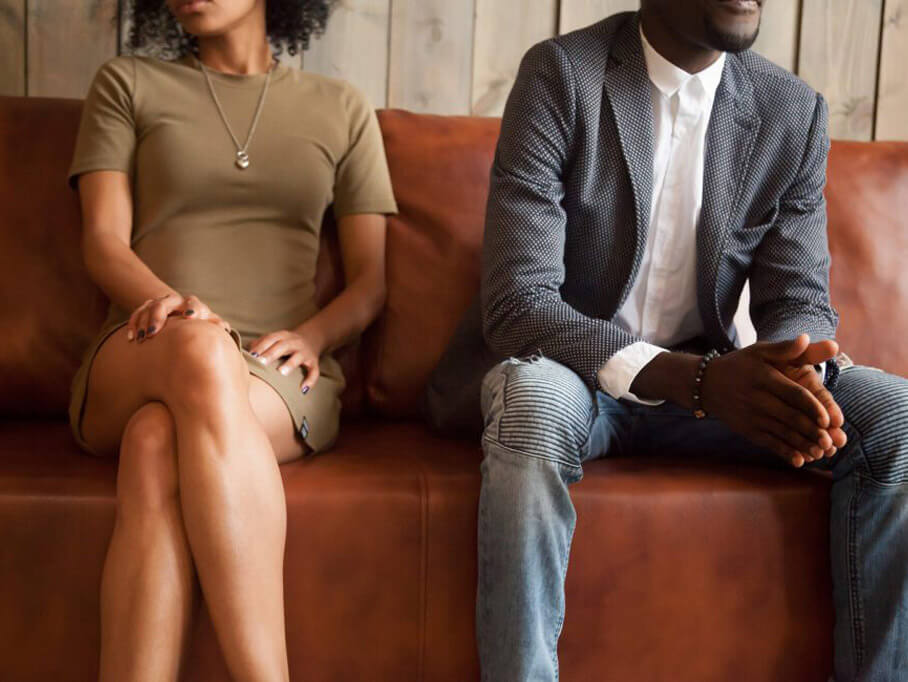
Why Go To Couples Counseling?
WRITTEN BY:
Roxanne Maroney
October 31, 2022
That’s a good question and one we often asked, especially when we reached an impasse, or a rough time in our marriage. The truth is almost any marriage would benefit from good counseling at various stages of their relationship. It’s important before you get married to clarify strengths and weakness, values, goals, learn communication skill, and so much more. In the best of relationships, it’s crucial to reach out again after you have your first child because of the difficult challenges it presents, then again when you are empty nesters, and maybe again when you approach retirement. Each stage requires growth and adjustments. But you still may ask what specifically are we learning?
What’s the goal of counseling? If we are “doing fine” isn’t that good enough? During nearly 48 years of marriage, we saw 9 counselors, and like most couples, it was when we were not in a good place with each other. To be honest, many of the counselors we saw left us empty or confused and we still felt stuck, but it was partly because we didn’t know what we needed.
As a counselor now, most couples I meet with come to me believing their partner is the one who needs to change. They have spent years denying or ignoring the major problems in their marriage and unsuccessfully trying to change their partner. This was true of us as well. I was sure my husband was the problem, and he thought the same of me, but this was a big mistake because it prevented us from seeing our individual parts in our relationship struggle. We each needed to clean up our side of the street and stop waiting for the other person to get their act together. When it comes to improving your relationship, the first step is your attitude toward change. Being open and willing to see your blind spots is crucial to your success.
As one who has been helped herself, and now helping others, I see the primary goal of couples counseling is to increase your understanding of yourself, your partner, the patterns of interactions that have become detrimental to the relationship, and to understand where these patterns began.
The past is not the past if it invades the present. The past repeatedly raised its ugly head in our relationship, but we didn’t recognize it, or what to do about it. Once the impact of your history is explored and understood, you are in a better position to identify your feelings and connect how they influence your thoughts and actions. The goal is to change ineffective or destructive beliefs and behaviors into positive ones that will enhance your relationship.
“Fire can warm or consume, water can quench or drown, wind can caress or cut. And so it is with human relationships: we can both create and destroy, nurture and terrorize, traumatize and heal each other” – Dr. Bruce Perry, Child Psychologist
I have often heard the quote, “awareness is easy, but real change is hard.” Identifying what to do and how to do it is the easiest part of couple’s work. The real work is being honest with yourself, figuring out what holds each of you back from becoming the partner you want to be in the relationship. We found the key was hidden in our histories. It’s a combination of the false or wrong ways of coping we learned growing up, as well as the things we didn’t learn about how to relate well, trust, bond, communicate, forgive, connect emotionally, and so much more.
Thus, the need for counseling…
Here are some of the essential skills we didn’t know we were missing, and wish we had learned sooner than we did.
Learning empathy
The capacity to look at your partner’s pain not just your own.
Learning appreciation
A capacity to work together as a team and develop a strong friendship.
Learning to take responsibility for self
The motivation to change, even when it gets difficult.
Learning self-awareness
The capacity to speak from your heart about what really matters.
Learning patience
The capacity to give grace, and offer “do-overs”, because growth takes time.
Learning generous listening
The capacity to really listen and reflect back what you heard.
Sounds easy right? No, not really. But it’s no different than learning any skill you didn’t learn in childhood. It takes good coaching, time, practice, and a willingness to grow and change.
Because so many of us didn’t learn healthy skills of relating growing up, we may need the assistance of the right counselor or coach. I say “right counselor” because we found many counselors who sympathized and cared but didn’t provide clear direction or practical steps. Others didn’t challenge our unhealthy thoughts and beliefs or call us to anything higher than our own relief or comfort, even suggesting divorce at times. Some counselors were Christians but didn’t help us explore the spiritual part of our lives or how those values influenced our relational patterns.
If we are truly made up of three parts – mind, body, and soul – then all three are important in healing the whole person. Lastly, when we aren’t in touch with the source of our emotional reactivity from our histories it is difficult to apply helpful tools. Although most couples seek counseling to improve communication, what they really need is a foundation of self-awareness and compassion in order to really hear, see, resolve, and grow together in a meaningful way.
So, if you are asking the question “why bother with counseling”, consider that your biggest problem may be that you don’t know what you don’t know, and a good counselor can help reveal your blind spots and give you a roadmap for change.




